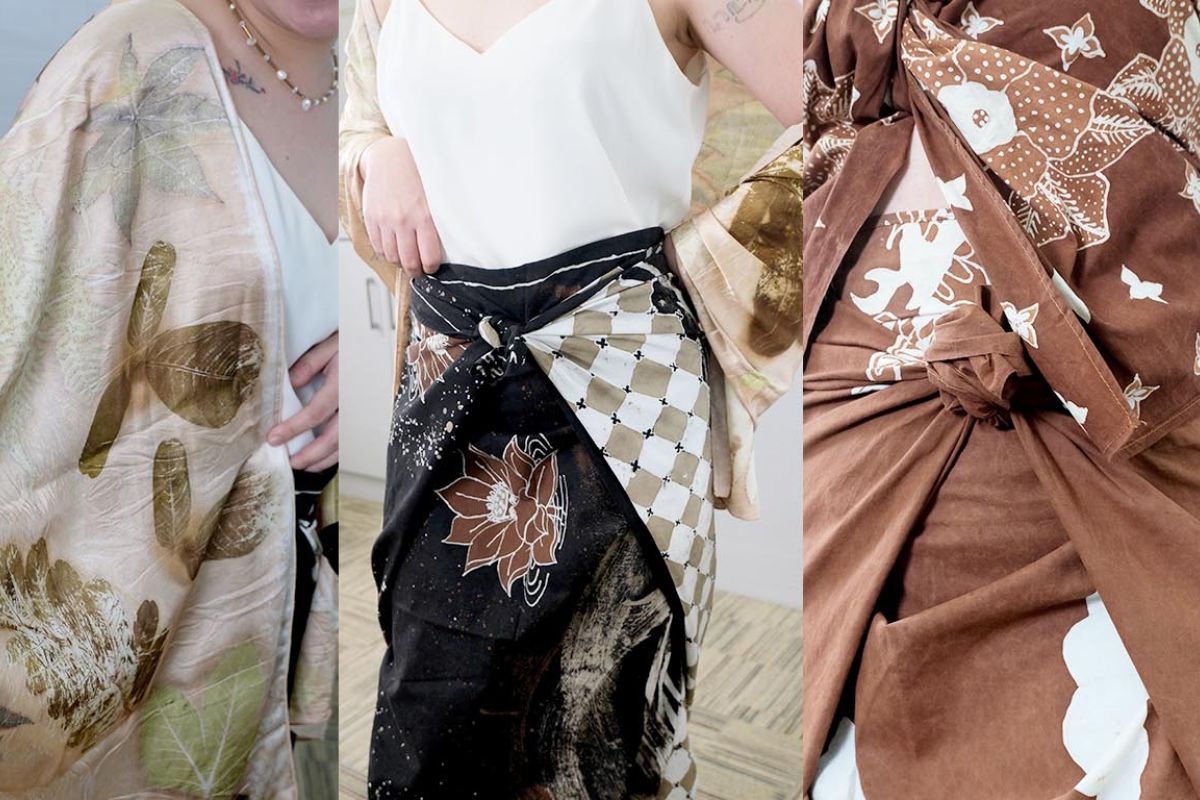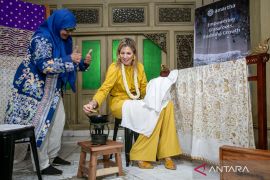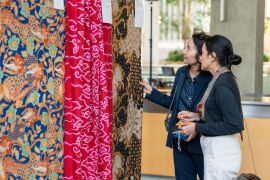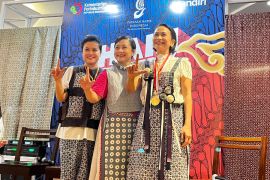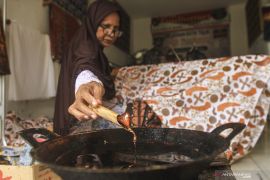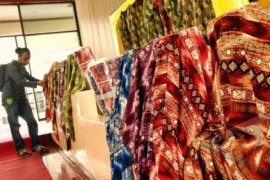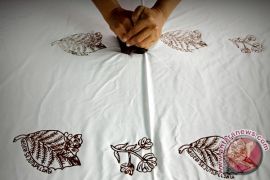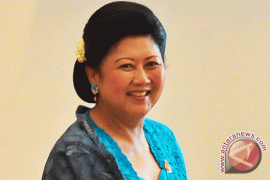The auction, which will last from April 18 to 21, 2022, has been organized in collaboration with the Second Chance Foundation, United Nations Office on Drugs and Crime (UNODC), UN Women, the Directorate General of Corrections of the Law and Human Rights Ministry, with the support of the HiApp Indonesia startup.
Chairperson of the Second Chance Foundation Evy Amir Syamsudin said in a statement here on Monday, that the auction’s theme 'Bringing Kartini's Empowerment to Modern Day Prisons' is expected to encourage the public to participate in the auction and support the empowerment of women inmates. Aside from the auction, people can take part in discussions with experts on the issue.
Kartini's efforts toward women's emancipation still resonate today, and the values she upheld in her struggle are indirectly related to the lives of women inmates in prisons today.
Kartini is a figure who provides a universal lesson for women to speak up so that they can break free from their constraints.
"Kartini's tireless struggle in fighting for women's emancipation reminds us that there is always an opportunity to empower ourselves in a challenging environment," Syamsudin said.
She highlighted that there are a number of women inmates who possess potential talents that can be developed further. One attempt to encourage their talent is committing them to batik production and eco-print programs.
Those programs are the flagship programs of the Semarang Women's Prison. The products are even marketed to countries abroad, such as Japan, she explained.
The Second Chance Foundation had also partnered with UNODC in 2019 to support the batik and eco-printing production program at Semarang Women's Prison.
Syamsudin said that the inmates' creations have a unique quality, which cannot be replicated by other products, in general.
They are not merely handicrafts, but the result of the conjoined tastes and thoughts of a group of women serving a prison sentence while trying their best to improve themselves and starting a new life by being productive so that they can be accepted by society again, she added.
Using the products could lend indirect support to the inmates, thereby encouraging them to become independent and productive individuals, she said. It can also serve as a means to promote batik as a national cultural treasure, and in turn, push the domestic creative economy, she added.
She disclosed that a large number of women inmates come from socioeconomically disadvantaged groups. Some are sanctioned due to problems arising from their status, too.
Once they finish serving their sentence, they can be stigmatized by the public, she added. This can hinder them from seeking jobs to support themselves.
She likened job-seeking by women inmates to looking for a needle in a haystack. Even ex-inmates with high education levels face the same fate, she added.
She called for the government, private sector, and public to provide better opportunities to women inmates who are committed to bettering their lives.
This is to prevent them from being at odds with the law again.
"We need to work together to push for the readiness of female inmates (so they that can reintegrate) with the society, particularly by creating opportunities in the social, economic, education, or cultural aspects,” she said.
Maximizing partnerships and resources
UNODC Indonesia country manager and liaison to ASEAN, Collie F. Brown, said that currently, there are good capacity-building vocational programs for women inmates, which offer a lot of hope for them, such as the eco-friendly batik workshop program.
"But women, or anyone for that matter, should not have to go to a correctional facility first to be able to learn a skill," said Collie.
Partnerships and resources need to be used to provide interventions in society to prevent and divert women from the prison system, which causes them to lose their freedom.
Brown said that this is not a soft approach to crime, but a form of good public policy. One can hold perpetrators of crimes accountable without having to put them in prison, she said.
Meanwhile, stakeholders can provide limited space in correctional institutions for criminals who do pose a threat to public security, and thus must be separated from society.
Brown informed that when the relevant stakeholders do not divert women inmates from this form of imprisonment, children face the risk of becoming victims as well.
Lack of adjustment, inadequate achievements at school, and the occurrence of child crimes are some consequences that can arise from this situation.
In the long term, this negatively impacts society, on top of eating away the government’s budget, she added.
Related news: Ratification of sexual violence bill a Kartini Day gift: official
Related news: RUU TPKS ratification a present for women on Kartini Day
Related news: Gender equality played role in Indonesia's independence: BPIP
Translator: Nanien Yuniar, Mecca Yumna
Editor: Sri Haryati
Copyright © ANTARA 2022
